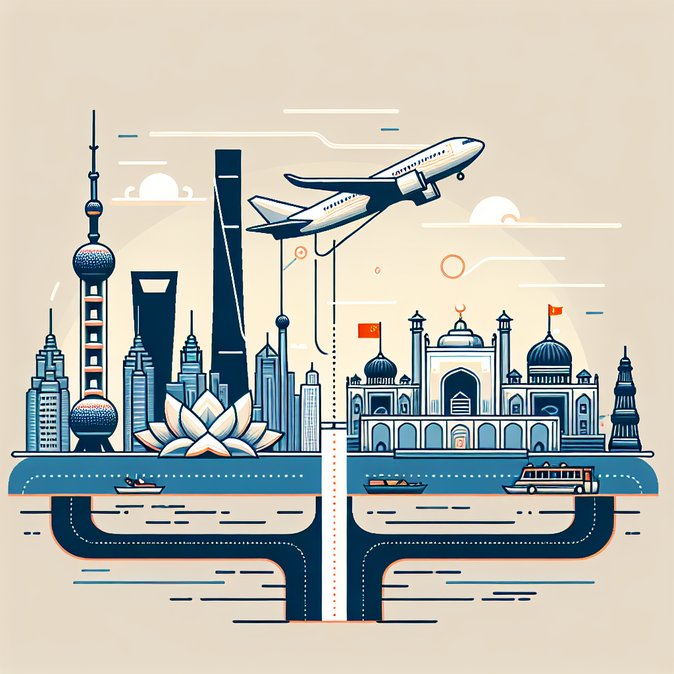
China Eastern Airlines has quietly resumed three-times-weekly service between Shanghai Pudong and Delhi, ending a five-year suspension that began during the COVID-19 era and escalated amid bilateral tensions. Sunday’s inaugural MU 563 departed Pudong with a 95 percent load factor, underlining pent-up demand for east-bound business travel and Indian students returning to Chinese universities.
The carrier is using 262-seat Airbus A330-200s with lie-flat business-class seats and belly-hold capacity for 15 tonnes of freight — coveted by e-commerce platforms shipping luxury goods to India. Round-trip fares have been set at RMB 3,200 (US$440) in economy, while promotional business-class tickets start below US$1,300, pressuring Gulf and Southeast-Asian transit rivals.
![China Eastern Re-opens Shanghai–Delhi Route, First Mainland Carrier Back on India Sector]()
For relocation managers, the Shanghai–Delhi connection significantly reduces routing complexity for assignees moving between the Yangtze River Delta and India’s NCR. Cargo operations teams gain a fresh option for temperature-controlled pharmaceutical shipments originating in Suzhou and headed to Delhi’s expanding life-sciences parks.
China Eastern executives said frequencies could rise to daily “within the winter schedule” if bilateral seat-entitlement talks progress. The airline also aims to relaunch Kunming–Kolkata and debut a Shanghai–Mumbai link, potentially creating a triangle network that would give mobility planners far greater flexibility for multicity assignments.
Travel-health protocols have normalised: passengers need only a digital Customs Health Declaration Code; pre-departure PCR tests are no longer required. Visa issuance for Indian citizens remains tight but has accelerated to three-week average turnaround, according to agents in Bengaluru.
The carrier is using 262-seat Airbus A330-200s with lie-flat business-class seats and belly-hold capacity for 15 tonnes of freight — coveted by e-commerce platforms shipping luxury goods to India. Round-trip fares have been set at RMB 3,200 (US$440) in economy, while promotional business-class tickets start below US$1,300, pressuring Gulf and Southeast-Asian transit rivals.

For relocation managers, the Shanghai–Delhi connection significantly reduces routing complexity for assignees moving between the Yangtze River Delta and India’s NCR. Cargo operations teams gain a fresh option for temperature-controlled pharmaceutical shipments originating in Suzhou and headed to Delhi’s expanding life-sciences parks.
China Eastern executives said frequencies could rise to daily “within the winter schedule” if bilateral seat-entitlement talks progress. The airline also aims to relaunch Kunming–Kolkata and debut a Shanghai–Mumbai link, potentially creating a triangle network that would give mobility planners far greater flexibility for multicity assignments.
Travel-health protocols have normalised: passengers need only a digital Customs Health Declaration Code; pre-departure PCR tests are no longer required. Visa issuance for Indian citizens remains tight but has accelerated to three-week average turnaround, according to agents in Bengaluru.







